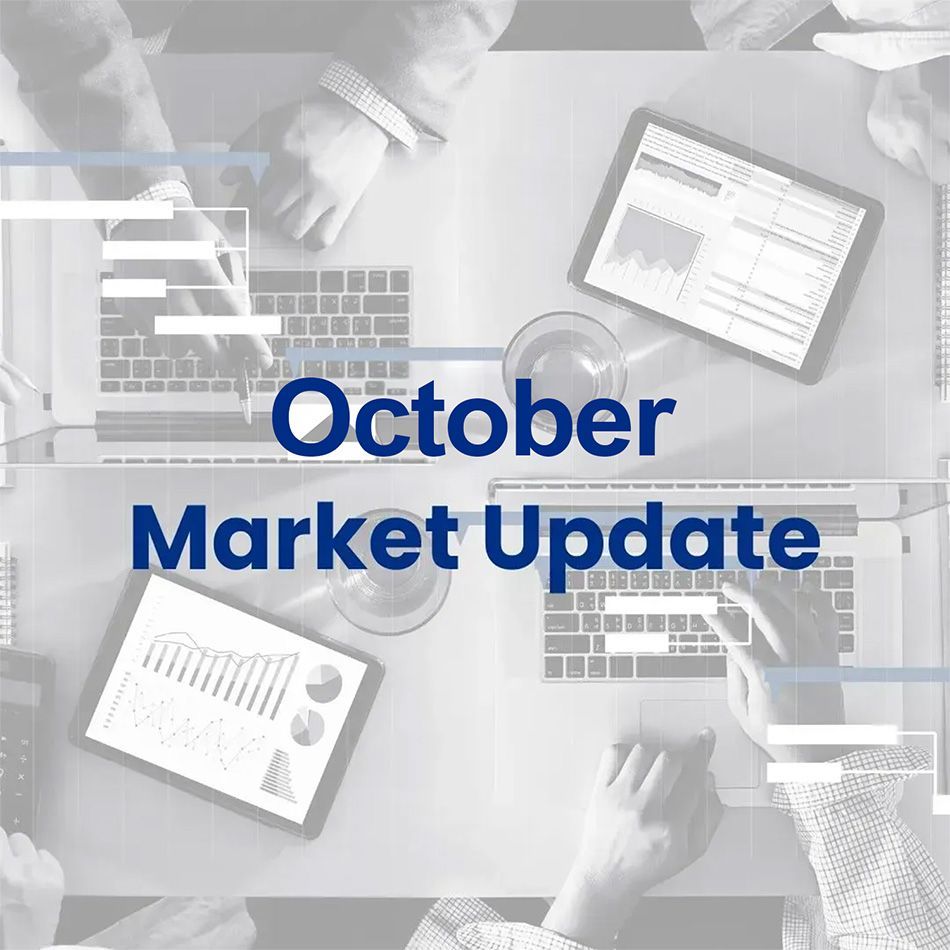Blog
Contact Us
January 16, 2026
Life goals change over time. Careers grow, families evolve, businesses expand, and priorities shift. For individuals and business owners, financial planning can help bring structure and clarity to these changes. Financial planning isn’t about predicting the future. It’s about making informed decisions today that support what matters most to you tomorrow. Start With Your Life Goals, Not Just the Numbers A strong financial plan starts with understanding your goals. These may include: Supporting your family’s lifestyle and future needs Preparing for a comfortable retirement Growing or protecting a business Planning for major life transitions Creating a legacy through thoughtful estate planning Whether you’re focused on personal financial planning or financial planning for businesses in Kalamazoo, MI, aligning your money decisions with life goals could provide clarity, direction and purpose. Many individuals and business owners choose to work with a financial planner or financial advisor in Kalamazoo, MI to help organize goals into a realistic, actionable financial plan that balances today’s priorities with tomorrow’s ambitions. Building a Financial Plan That Adapts With You Life doesn’t stand still, and neither should your financial planning. A well-designed financial plan is meant to evolve as your circumstances, priorities and goals change. Key areas to review regularly could include: Income and savings strategies Investment management approaches and investment models Risk management services and financial risk assessment Retirement planning service needs and timelines Regular reviews with a financial planning firm or financial consultant in Kalamazoo, MI can help ensure your plan stays aligned with both short-term priorities and long-term goals. Managing Risk Along the Way Pursuing life goals often comes with some level of risk. Understanding and managing that risk is a central part of effective financial planning. Risk management services may include: Life insurance services in Kalamazoo, MI Disability planning to help protect income Evaluating investment risk within your overall financial strategy Financial planning isn’t about eliminating risk entirely; it’s about balancing risk in a way that fits your comfort level and supports goals. A risk manager or fiduciary services provider can help explain options clearly, so decisions feel practical and manageable. Planning for Retirement With Purpose Retirement planning isn’t just about a date on the calendar, but also about supporting the lifestyle you want. Retirement income planning often ties directly to broader life goals like travel, flexibility, or quality time with family. Considerations may include: Reviewing retirement plans and retirement plan investments Coordinating personal savings with workplace plans Exploring retirement plans for small businesses Business owners may also benefit from working with a 3(38) investment manager in Kalamazoo, MI to support retirement plan oversight and investment decision-making. Estate Planning and Long-Term Considerations As life goals become more complex, estate planning often becomes a priority. Estate planning services help organize and clarify how assets may be managed or distributed in the future. This may involve working with: An estate planner in Kalamazoo, MI Fiduciary services providers Professionals coordinating wealth management services Estate planning isn’t just about wealth, but also clarity, organization, and making sure your intentions are documented. Financial Planning for Business Owners For business owners, personal and professional goals are often closely connected. Financial planning for businesses in Kalamazoo, MI may include: Business plan consulting Commercial financial services Aligning business cash flow with personal financial goals A coordinated approach can help business owners balance growth opportunities with longterm personal planning. Choosing the Right Guidance As financial responsibilities grow, many individuals and business owners turn to professional support to help navigate decisions with confidence. A financial planning firm or investment advisory firm in Kalamazoo, MI may offer services such as: Investment advice and investment management Support from a Financial advisor or financial planner Individual financial planning and wealth management services The emphasis is on education and informed decision-making. It’s not a one-size-fits-all solutions. Bringing It All Together Life goals give your financial journey direction. Financial planning provides the structure to help you reach them. Together, they can help individuals and business owners feel more prepared and confident about what lies ahead. Whether you’re exploring personal financial planning, retirement planning service options, or commercial financial services in Kalamazoo, MI, aligning financial decisions with life goals can support clarity and confidence over time.

January 5, 2026
A new year naturally brings reflection and fresh starts. For many individuals and business owners, it’s also a great time to take another look at financial habits and make a few intentional adjustments. The good news? Building momentum doesn’t require complicated strategies or confusing financial jargon. Small, consistent changes can support long-term financial goals. Below are practical, easy-to-understand financial habits to consider as you begin the year, whether you’re focused on personal priorities, your family’s future, or financial planning for businesses in Kalamazoo, MI. 1. Revisit Your Financial Plan (or Create One) If you already have a financial plan, the start of the year is a great time to revisit it. Life changes fast. Career growth, family needs, business expansion, or shifting timelines can all impact how your plan should look today to reach your end goals. If you don’t have a formal plan in place, this may be the year to start. A well-structured financial plan helps organize income, savings, investments, and protection strategies in one place. Many people work with a financial planning firm in Kalamazoo, MI to help create a plan that reflects both short-term priorities and long-term goals. This step applies to both individual financial planning and financial planning for businesses, especially for owners balancing personal finances alongside business decisions. 2. Build the Habit of Regular Financial Check-Ins One of the most effective financial habits is simply paying attention. Instead of setting goals once a year and hoping for the best, build in regular financial check-ins. These could be quarterly or semiannual reviews that help you stay aligned and make adjustments as needed. These check-ins can help you: Track progress toward retirement planning goals Review retirement plan investments or retirement plans for small businesses Adjust savings targets or address cash flow needs Revisit risk management services and insurance coverage Consistent financial check-ins support better decision-making, keep plans on track, and help reduce surprises later on. 3. Understand Risk—Without the Stress Risk is part of every financial decision, but it doesn’t have to feel overwhelming. Building a basic understanding of your financial risk assessment can help you make more confident, informed choices without unnecessary stress. This often includes reviewing: Investment management strategies and investment models Life insurance services and disability planning in Kalamazoo, MI Risk management services for both individuals and business owners Working with a financial consultant or financial advisor in Kalamazoo, MI can help clarify how different risks may impact your overall financial picture, so you can move forward with clarity instead of uncertainty. 4. Don’t Overlook Protection and Planning Beyond Investments Building strong financial habits isn’t just about investing. Protection and long-term planning play a major role in overall financial stability and peace of mind. It's worth taking time to review: Estate planning services and support from an estate planner in Kalamazoo, MI Beneficiary designations Life insurance services and disability planning options For many families, estate planning helps provide clarity and continuity across generations. For business owners, it often ties into succession planning and long-term business goals. These areas are often coordinated with fiduciary services and a broader wealth management services strategy to ensure everything works together. 5. Align Retirement Goals With Today’s Decisions Retirement planning conversations aren’t just for those nearing retirement. For individuals in their 20s, 30s, 40s, and 50s, the habits and decisions you make today can play a meaningful role in shaping future retirement income planning. This may include: Reviewing retirement plan options Evaluating retirement plan investments align with your goals Coordinating personal financial planning with business-sponsored retirement plans Business owners may also benefit from guidance around retirement plans for small businesses and working with a 3(38) investment manager in Kalamazoo, MI, where appropriate. The goal is alignment and making sure today’s choices support the lifestyle you want later. 6. Choose Guidance That Matches Your Needs As financial responsibilities grow, many individuals and businesses find value in professional guidance. Working with a financial planning firm or investment advisory firm in Kalamazoo, MI can provide education and guidance tailored to your specific goals and circumstances. Depending on your needs, this guidance may include: Support from a financial advisor or financial planner Investment advisors and investment management services Fiduciary services focused on acting in the client’s best interest Business plan consulting in Kalamazoo, MI The goal is not complexity, but clarity. The right guidance helps you understand your options, feel more confident in your decisions, and move forward with purpose. A Thoughtful Start to the Year Building new financial habits doesn’t mean making dramatic changes. By focusing on awareness, consistency, and alignment with your goals, you can take meaningful steps toward a stronger financial foundation. Whether you’re reviewing a personal financial plan, exploring commercial financial services in Kalamazoo, MI, or considering long-term wealth management services, the new year is an opportunity to reset and refocus.

November 21, 2025
A Power of Attorney is a legal document that grants authority to a chosen individual. Often referred to as an agent who is able to act on someone’s behalf. The scope of this authority depends on the type of POA established and the instructions included within the document. Responsibilities may include managing certain financial accounts, paying bills, handling administrative tasks, or making specific medical or legal decisions. Common types of POAs include: Financial Power of Attorney: Allows an agent to help with financial or administrative responsibilities. Healthcare Power of Attorney: Allows an agent to participate in healthcare-related decisions if the individual is unable to do so. Durable Power of Attorney: Remains in effect if the individual becomes incapacitated, unless stated otherwise. Limited or Temporary Power of Attorney: Provides authority for a specific task or timeframe. Because POA requirements differ by state, it can be helpful to review local regulations and consult a qualified legal professional when creating one. Why a Power of Attorney Matters in an Estate Plan 1. It helps maintain continuity if decision-making becomes difficult Life events can occur that make it challenging for someone to manage their financial or personal responsibilities. A POA outlines who is able to assist, which may help reduce delays or confusion. 2. It may help simplify processes for loved ones Without a POA, family members may need to pursue a court process to obtain the authority needed to manage important matters. Having one in place can help reduce administrative steps during already stressful situations. 3. It supports the structure of an overall estate plan A POA works alongside other documents—such as a will, healthcare directives, and beneficiary designations—to help reflect an individual’s preferences and outline who can assist in various scenarios. 4. It provides clarity and helps reduce uncertainty Formally naming an agent can help family members understand who should take on certain responsibilities. This may reduce confusion or potential disagreements during sensitive situations.

November 17, 2025
Diversification is a core concept in investment management. It involves spreading assets across a variety of investment types, industries, and geographic regions to help manage exposure to market fluctuations. While the idea sounds straightforward, building and maintaining appropriate diversification requires experience, analysis, and ongoing attention. This is one area where a financial advisor can provide professional guidance. 1. Managing Risk Through Balance Diversification can help reduce the impact that any single investment or market sector may have on your overall portfolio, like AI. When one portion of the market experiences a downturn, other segments may perform differently. Financial advisors use research and data to help identify an allocation that seeks to balance potential risks and returns based on your investment objectives. 2. Aligning Investments With Your Goals Effective diversification depends on your personal goals, time horizon, and tolerance for market changes. A financial advisor can assist in designing an allocation strategy that reflects your individual circumstances. This helps ensure your portfolio remains consistent with your broader financial plan over time. 3. Identifying and Managing Concentration Risks Many investors unintentionally hold overlapping investments or place too much emphasis on one sector, company, or asset class. An advisor can review your holdings to help identify concentration risks and recommend ways to create a more balanced portfolio. 4. Providing Ongoing Monitoring and Adjustments Over time, market movements can shift the proportions of your holdings. A financial advisor can periodically review and adjust your portfolio to help maintain your intended level of diversification. This process, known as rebalancing, supports consistency with your long-term objectives. 5. Offering Perspective and Guidance Financial advisors bring perspective and experience to the investment process. During periods of market volatility, they can provide objective guidance and help you stay focused on your plan rather than reacting to short-term movements. Key takeaway: Diversification remains an essential part of long-term investing. Working with a financial advisor can help you structure and maintain a diversified portfolio that reflects your goals, adapts to market changes, and supports a disciplined investment approach.

November 11, 2025
Investing can feel complex, especially when the financial news is filled with daily market movements, stock price swings, and economic updates. While these fluctuations can capture attention, they represent only a small part of the broader investment picture. For many investors, maintaining a long-term perspective is an important part of building a financial plan that aligns with personal goals, risk tolerance, and time horizon. Understanding the Long-Term Approach A long-term investment approach emphasizes consistency, patience, and careful planning. Instead of making decisions based on short-term market events, investors may benefit from focusing on their overall objectives, such as retirement planning, education funding, or wealth preservation. Market ups and downs are normal and expected, and reacting impulsively to short-term changes can sometimes move an investment strategy off course. Long-term investing also allows time for strategies such as diversification and asset allocation to potentially support the intended financial plan. A diversified portfolio can help manage exposure to different types of risk, while periodic reviews of asset allocation can help assess whether the investment approach continues to align with long-term goals. The Role of a Financial Advisor Financial advisors can provide perspective and guidance throughout the investment journey. By helping clients define their financial objectives, advisors assist in creating a personalized plan that reflects individual circumstances, risk tolerance, and time horizon. During periods of market volatility, advisors can help investors maintain focus on the long- term plan rather than reacting to short-term changes, offering insight into how market events may or may not impact long-term goals. Advisors can also assist with regular reviews of a portfolio, recommending adjustments when appropriate to help keep investment allocations aligned with the plan. These periodic reviews can help investors make informed decisions based on their evolving needs rather than on market noise. Maintaining Perspective Staying focused on a long-term financial plan may help provide structure and support when market conditions are uncertain. While markets may fluctuate, the overarching goal of a long-term plan is to provide a framework for informed financial decisions. Investors who maintain a long-term perspective and regularly review their plan with a financial advisor may find it easier to navigate periods of volatility while keeping their objectives in mind. Investing for the long-term requires discipline, perspective, and a commitment to a financial plan designed to reflect individual goals and circumstances. By focusing on broader goals rather than day-to-day market movements, investors can make decisions that reflect their personal priorities. A financial advisor can help guide this process, providing guidance and support to help the plan remain aligned with an investor’s objectives over time.

November 4, 2025
When it comes to building and maintaining a strong financial foundation, effective investment management in Kalamazoo, MI can make all the difference. Whether you’re saving for retirement, funding education, or planning for long-term growth, having a clear investment strategy with the right professional guidance can help keep you on track toward your goals. Below are some smart tips for approaching your investments with discipline and confidence. 1. Start with a Clear Financial Plan Before diving into investments, take time to define your financial goals. Are you saving for retirement, planning for a major purchase, or building long-term wealth? An investment advisor in Kalamazoo, MI can help you clarify your objectives and determine the appropriate level of risk for your situation. 2. Diversify Your Portfolio Diversification is one of the key principles of sound investment management in Kalamazoo, MI. By spreading your investments across different asset classes, such as stocks, bonds, and alternative investments, you can help reduce the overall impact of market volatility. An investment manager in Kalamazoo, MI can design diversified investment models in Kalamazoo, MI that align with your time horizon, goals, and comfort with risk. 3. Focus on Long-Term Goals It can be tempting to react to short-term market movements, but successful investors keep their eyes on the bigger picture. Market fluctuations are normal, and patience often pays off. A professional investment advisory firm in Kalamazoo, MI can help you stay focused on your long-term objectives and help minimize emotional decision-making that may derail your progress. 4. Review and Rebalance Regularly Your investment portfolio should evolve with your life and the market. Regular reviews and rebalancing can help your investments remain aligned with your goals and risk tolerance. Working with experienced investment advisors in Kalamazoo, MI provides the added benefit of ongoing support, analysis, and accountability. 5. Understand the Costs and Risks Every investment carries some level of risk, and it’s important to understand the costs associated with your strategy. An investment advisory firm in Kalamazoo, MI will take the time to explain these details and help you feel informed and confident in your decisions. 6. Seek Personalized Advice No two investors are the same. Personalized investment advice in Kalamazoo, MI takes into account your own financial situation, goals, and preferences. A tailored approach, supported by an independent investment manager in Kalamazoo, MI, can help you build a strategy designed for your individual needs. Final Thoughts Good investment management is about more than chasing returns. It’s about having a disciplined plan, staying informed, and partnering with professionals who understand your goals. If you’re ready to take a more strategic approach to your financial future, consider working with an investment advisory firm in Kalamazoo, MI. The right team can provide the investment advice in Kalamazoo, MI you need to make confident, informed decisions at every stage of life.




